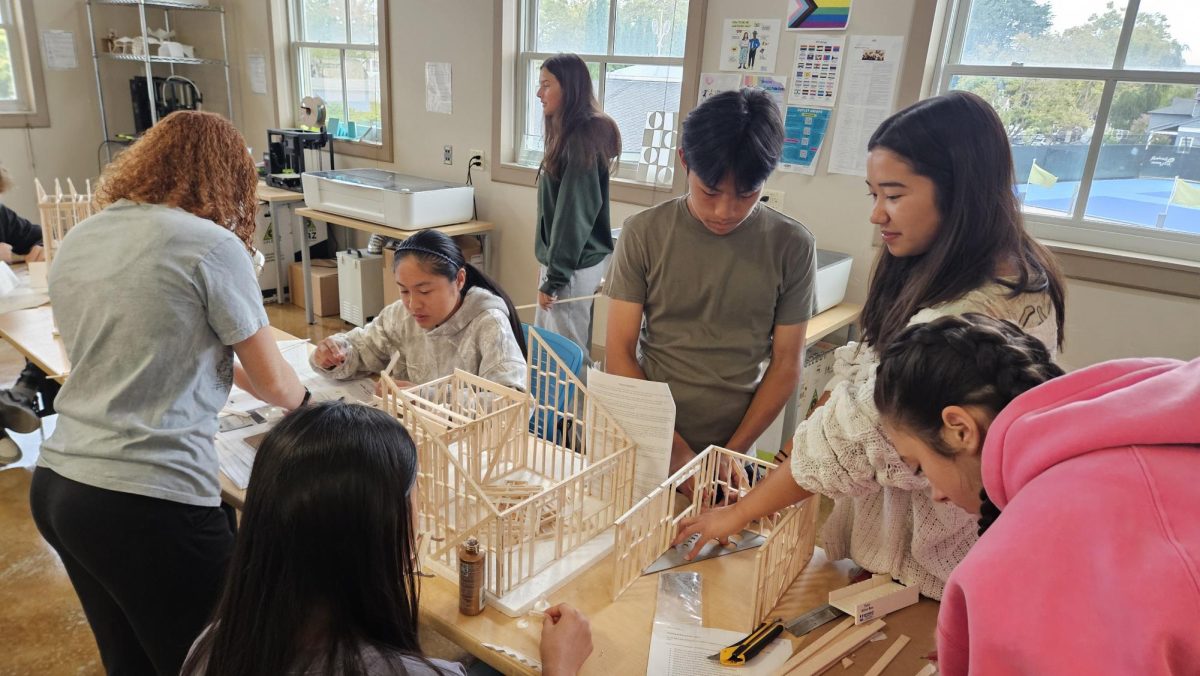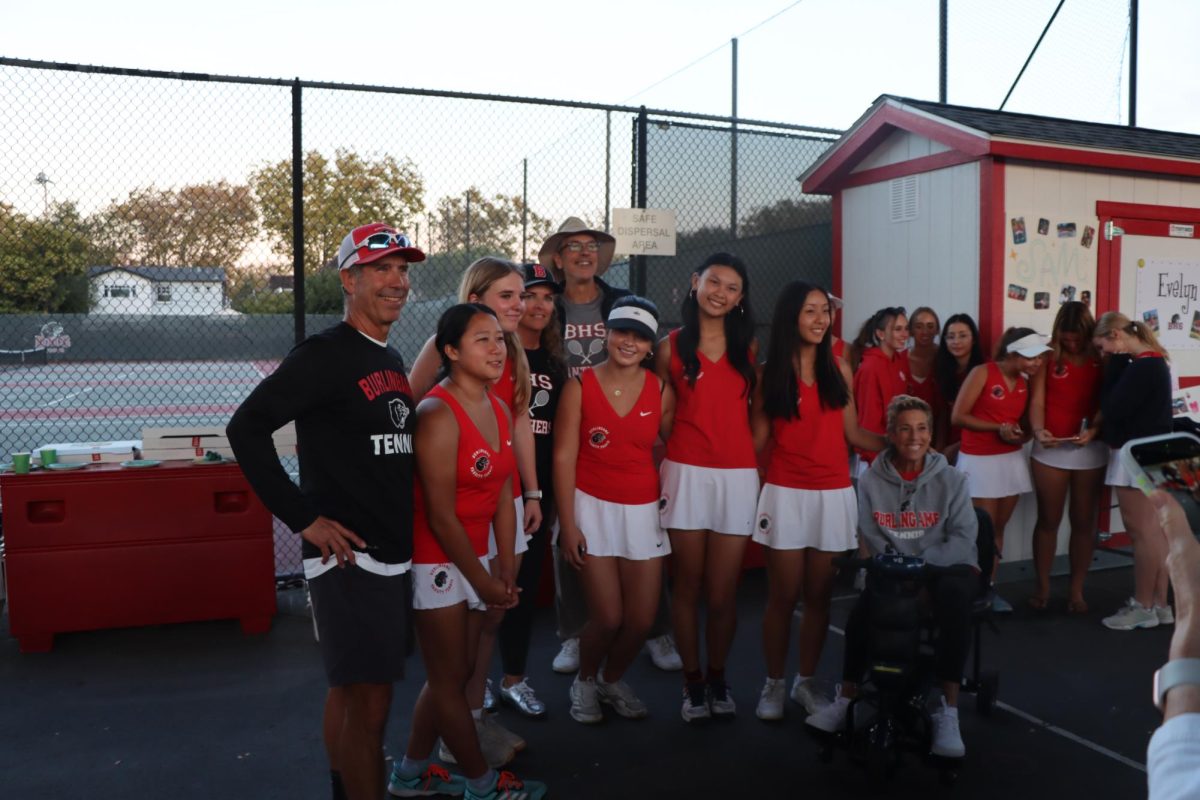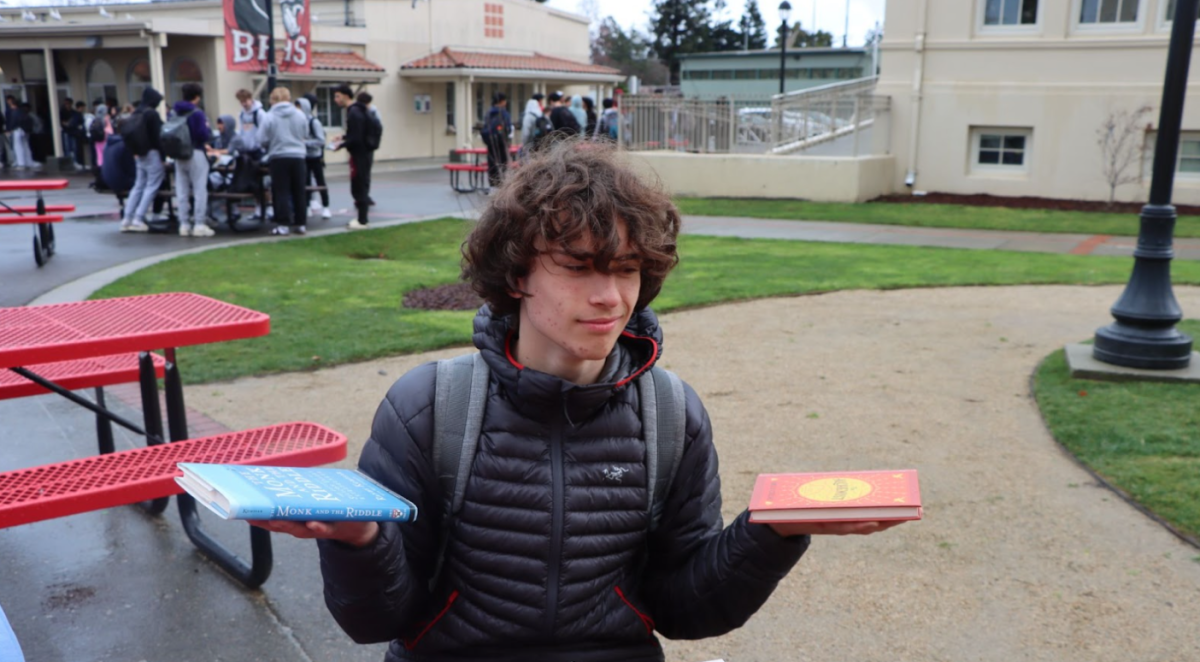For today’s generation, sitting down to read a novel can seem like a big task. When easier and more accessible (albeit unhealthier) routes to escapism exist on our cell phones and televisions, reading is pushed aside as a way to spend free time.
Sophomore Max Temple confirmed this trend, acknowledging that he reads roughly once a month.
“I really don’t have enough time to read. High schoolers are very busy and [would] rather pursue other hobbies. I usually have soccer practice and then will play video games or [do] homework after school,” Temple said.
Similarly, sophomore Nikita Mardakhaev favors other activities over reading.
“I would just rather watch Netflix than read. I don’t like reading books in English class because they can be boring,” Mardakhaev said.
English teacher Shane Karshan also attributes the lack of reading to an increase in distractions, such as technology. He emphasizes the importance of how fulfilling reading a good book can be.
“Yes, reading has become less popular but I don’t think that’s it. I think there are demands on time and all that social media. But if there’s a good book, and it is a book that is written well, and it’s something that students can get engaged with, and they find something they care about, then it will lead them to the right place,” Karshan said.
Like Karshan, English teacher Brian Clack will always push students to read and see the value of literature. But he understands the barrier.
“Reading [expands] how we think and [pushes us] to be better at things, but big-picture wise, there’s so many distractions nowadays that people just prefer,” said English teacher Brian Clack. “It’s easier to be distracted by a million different things than it is to sit down and dedicate time to really struggling with a challenging text.”
Clack emphasizes that students should eliminate their distractions and find time to overcome their initial reluctance to read. Clack also recommended short stories as a way to get back into the habit, as they require less of a commitment and can feel less intimidating to tackle.
“It’s just like any other kind of muscle that you use or practice that you do,” Clack said. “The more you do it, the easier it becomes and the more enjoyable it becomes, the less you do it, that part of your brain atrophies and less interesting and exciting it is to sit down and read. So finding time to eliminate distractions and get that practice is important.”
Karshan makes a consistent effort in his classroom to rekindle his students’ interest.
“I try to be enthusiastic about reading and show students how communicating beneath can let them connect with other people. Then they’ll see the usefulness and utility of books,” said Karshan.
Experiencing good writing can also excite people to be exposed to other things that they wouldn’t otherwise be exposed to, Karshan explains. It can also help with their own writing, and he adds that “great writing can be inspiring to kids who want to be better writers themselves.
Karshan emphasized the ability books have to teach empathy and intellectual curiosity. He believes reading will make a comeback due to its power to sweep kids away through its connection to greif, love, motivation and humor.
“I just think it’s really exciting to be transported by good writing that shows people that have experienced different things and who can powerfully make you empathize with other people,” Karshan said.








































